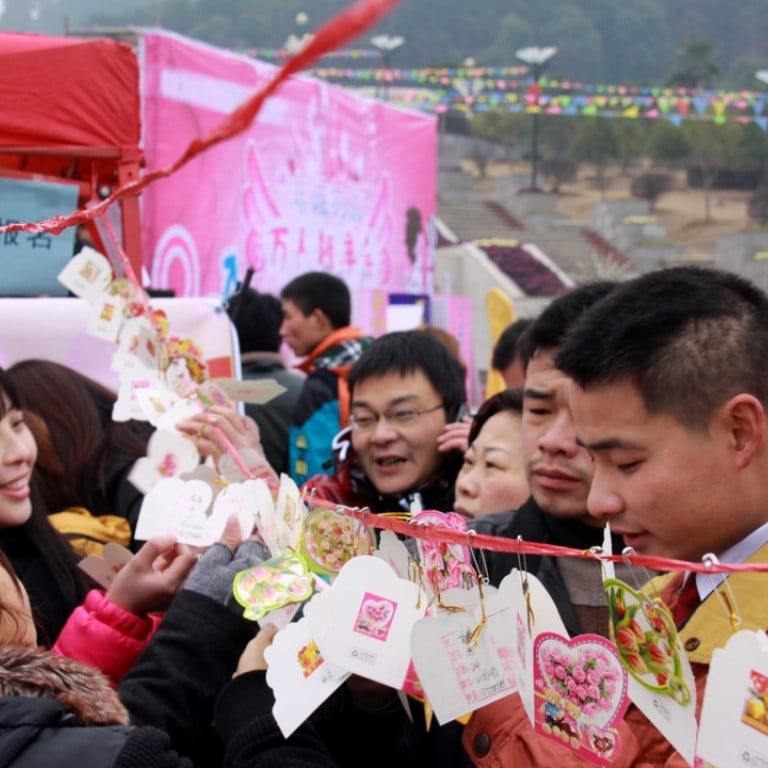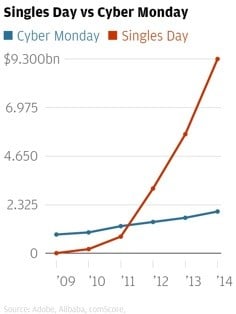
Singles Day November 11: How did AliBaba and JD.com turn China's celebration of the lonely into a shopping orgy?
Shopping frenzy Singles Day has a heart and a story, so where did it begin?
Singles Day is more than billions in sales on Alibaba and JD.com. Singles Day is more than a day for lonely hearts in China. It is both.
While now November 11 in China is more commercial than Christmas, it had a similar journey from cute to crass.

The numbers are also reminiscent of empty branches, which gave us the slang term: bare branches day.
11.11.1993

“Rather than seeing it as a way of celebrating single-hood, they see it as an end date,” Xu said. “This is the last day I’m going to be single.”
Lonely hearts would treat each other to dinner or buy another a present, perhaps ending their single status, making the day more like a Chinese Valentine’s Day.
READ MORE: Calling all the single ladies: Alibaba’s Singles’ Day shopping spree set to hit new sales record despite slowdown in China’s retail growth
Time’s up

“China used to be a society where there was no dating culture,” she said. “There was no going on dates to turn into a relationship. You see someone if you can marry them or you never see them again. It’s all or nothing.”
As the one-child policy took its toll on Chinese youth, singles were becoming all the more common as male children were preferred.
In January 2015, China’s National Health and Family Planning Commission acknowledged in a statement on its website: “Our country has the most serious gender imbalance that is most prolonged and affecting the most number of people”.
It was the perfect environment for a sales pitch.

So how big is it?
More than a million products were offered last year, according to Comscore. Customers this year will be able to choose from more than 6 million products from around 40,000 merchants and 30,000 brands. Consumers are expected to spend an average of 1,761 yuan ($277) per person, up 22 per cent year on year, according to a Nielsen survey of more than 1,000 Chinese Internet users.
The logistics

Watch: Kevin Spacey - aka President Frank Underwood - promotes Singles Day for TMall/Jack Ma
Additional reporting by Bloomberg
